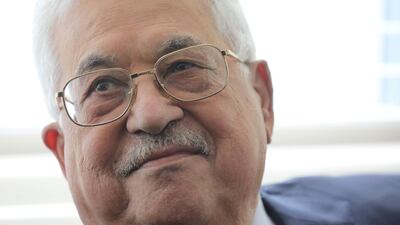The United Nations General Assembly has lacked a little punch this week. Benjamin Netanyahu used to provide it. His battle to remain in power made him stay home.
But Mr Netanyahu's bellicose tone and far-right politics stalled the Middle East peace process.
A sceptic of the two-state solution, he paid lip service to the concept during the two-term presidency of Barack Obama. The two men had a relationship that was uneasy - at best.
Mr Netanyahu, however, found a friend in Donald Trump. In the past three years the US officially recognised Jerusalem as the capital of Israel and agreed to move its embassy there from Tel Aviv, defying international conventions.
The Trump administration also cut funding for Palestinian refugees and has looked the other way when it comes to Israel's expansion of housing settlements on occupied land, which is occurring at record rates.
As far as Riyad Al Mansour, Palestine's ambassador to the UN, is concerned, the Israeli prime minister's current troubles represent an opportunity.
"The era of Benjamin Netanyahu may be finished," Mr Mansour told The National, noting that Mr Trump's long-awaited Middle East peace plan is adrift.
“People are not buying it,” Mr Mansour said, noting the resignation and imminent departure of its co-author Jason Greenblatt, who twice visited the UN in recent months to rally support for the American-led initiative.
He failed.
“There is global reaction of not accepting the Trump administration position,” Mr Mansour said of the US's economic and, as yet unpublished, political proposals, now led solely by Mr Trump's son-in-law and Middle East envoy Jared Kushner.
“Anything other than the two-state solution will fail,” said Mr Mansour, suggesting that public opinion in Israel may be amenable to a rethink and that a new government would allow some breathing space.
“If Prime Minister Netanyahu will not be the next prime minister it makes, for me, a lot of sense to say that we hope that the political formation in Israeli society will move in the direction of working with the international community and ending the occupation.”
Robert Danin, a former State Department and National Security Council official who worked in Democratic and Republican administrations, agreed that the US approach would not work, regardless of who leads Israel's next government.
“Given the line-up of players on all sides, the deep internal divisions among Palestinians and Israelis, and the larger regional challenges, no negotiation right now will produce a comprehensive Israeli-Palestinian peace,” said Mr Danin, senior fellow at Harvard Kennedy School's Belfer Center.
“That being said, a change in leadership in Israel, depending on who it is and the composition of the next government, could possibly open up new opportunities for renewed engagement and an overall improved environment for constructive diplomatic and on the ground steps necessary to prepare the groundwork for negotiations.”

